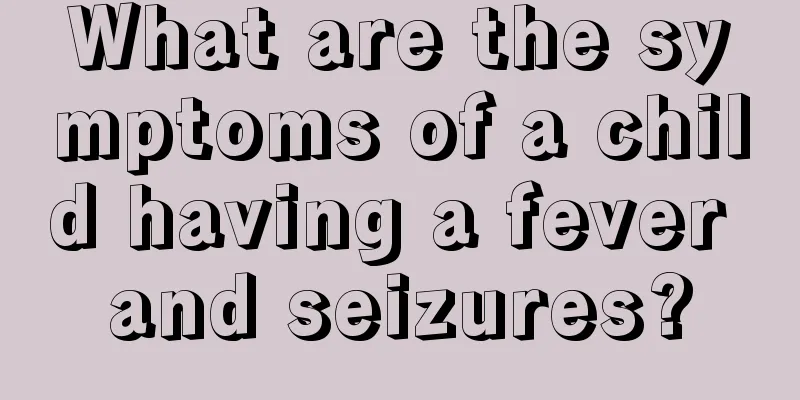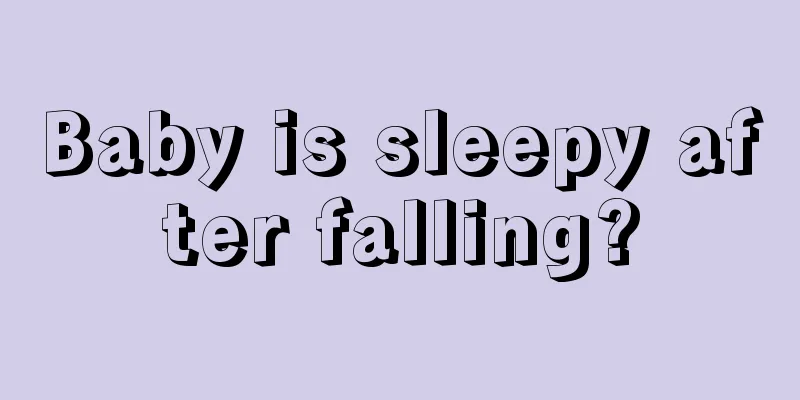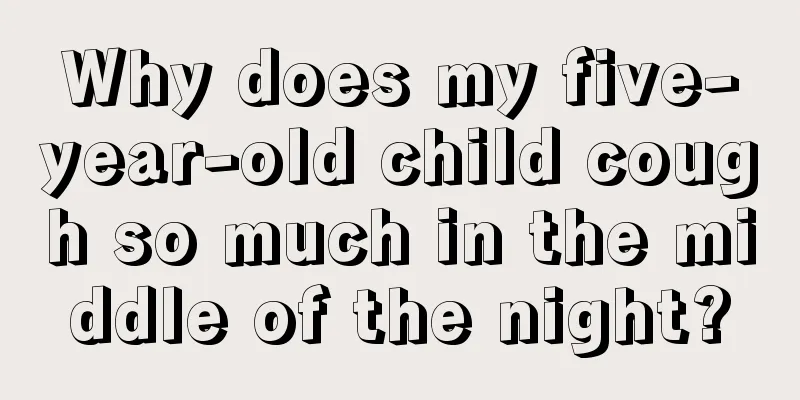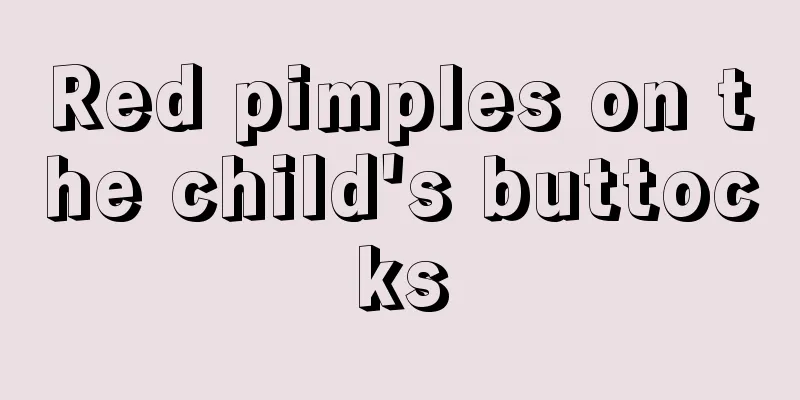What are the symptoms of a child having a fever and seizures?

|
Fever can be said to be something that everyone of us has experienced, and it can cause various complications. Most fevers are caused by inflammation in the patient's body, especially for babies. When they have a fever, they are likely to have convulsions due to high body temperature. At this time, the baby may also have convulsions all over the body, which is very harmful. So what are the symptoms of fever and convulsions in children? It is inevitable for babies to develop diseases during their growth process. Because children are young, their body functions have not yet fully developed, so their body resistance is particularly low. Especially when the baby has a fever, convulsions may occur in severe cases. This is a common occurrence. When this happens, it must be taken seriously and actively treated. Let's take a look at the symptoms of high fever convulsions in babies. Infantile convulsions, commonly known as seizures, are one of the most common emergencies in children. The main symptoms are uncontrollable contraction of whole body or local muscles, and there may be impaired consciousness. There are many causes of seizures in children. The more common ones are infections caused by bacteria and viruses, such as influenza, pneumonia, whooping cough, typhoid fever, dysentery, etc. In addition to causing poisoning and convulsions in children, these diseases can also cause convulsions due to high fever, which is called febrile convulsions. This type of convulsion often occurs during a fever and lasts for a short time. The person wakes up when the convulsion stops, and it is rare for more than two convulsions to occur during one fever. The convulsions will stop when the fever subsides. But it can recur, and convulsions may occur when a fever occurs. This type of convulsion often occurs in children under six years old. In addition, intracranial infections such as encephalitis, meningitis, brain abscess, brain parasitic diseases, etc., in addition to fever can cause convulsions, because their lesions occur in the brain, the relevant parts of the brain are stimulated and can also cause convulsions. There are some diseases that do not cause fever, such as tetanus, epilepsy, brain trauma, brain tumors and cancer, hypocalcemia, hypoglycemia, rickets caused by vitamin D deficiency, etc., which can also cause convulsions. Febrile convulsions are a common medical condition. About 3% of infants and young children aged 6 months to 6 years will experience convulsions when they have a fever or high body temperature. After the baby shows symptoms of high fever and convulsions, parents do not need to worry too much. First, undress the baby and let the baby lie on his side. After the baby returns to normal, parents must take the baby to the hospital for examination and treatment in time. In addition, during the treatment, parents should also pay attention to the baby's life and diet care, let the baby drink more water, and provide cooling treatment for the baby. The situation of high fever convulsion in babies is a disease that often occurs in babies. It is also a disease that many parents are particularly worried about. When the baby has a high fever convulsion, you must not worry too much, and do not do anything that is not good for the baby. In particular, many parents pinch the Ren Zhong point after the baby has a convulsion. This is abnormal. When the baby has a high fever convulsion, we must deal with it correctly. Let's understand what causes the baby's high fever convulsion? The causes of childhood convulsions can be divided into two categories: infectious (febrile convulsions) and non-infectious (afebrile convulsions) according to the presence or absence of infection. According to the site of involvement of the lesion, it is divided into intracranial and extracranial types. (1) Infectious convulsions (febrile convulsions) 1. Intracranial viral infections such as viral encephalitis and Japanese encephalitis. Bacterial infections such as purulent meningitis, tuberculous meningitis, brain abscess, and venous sinus thrombosis. Fungal infections such as cryptococcal meningitis. Parasitic infections such as cerebral cysticercosis, cerebral malaria, cerebral schistosomiasis, cerebral paragonimiasis, and toxoplasmosis. 2. Extracranial diseases: high fever convulsions, toxic encephalopathy (severe pneumonia, whooping cough, toxic dysentery, sepsis as primary diseases), tetanus, etc. (ii) Non-infectious convulsions (afebrile convulsions) 1. Intracranial diseases and craniocerebral injuries such as birth injuries, brain trauma, neonatal asphyxia, and intracranial hemorrhage. Abnormal brain development such as congenital hydrocephalus, cerebrovascular malformations, macrocephaly (microcephaly), cerebral palsy and neurocutaneous syndrome. Intracranial space-occupying diseases such as brain tumors and brain cysts. Epileptic syndromes such as grand mal seizures and infantile spasms. Brain degenerative diseases such as demyelinating encephalopathy and macular degeneration. 2. Extracranial diseases Metabolic diseases such as hypocalcemia, hypoglycemia, hypomagnesemia, hyponatremia, hypernatremia, vitamin B1 or B6 deficiency, etc. Genetic metabolic diseases such as glycogen storage disease, galactosemia, phenylketonuria, hepatolenticular degeneration, and mucopolysaccharidosis. Systemic diseases such as hypertensive encephalopathy, uremia, heart rhythm disorders, severe anemia, food, drug and pesticide poisoning, etc. The above introduction is about the causes of high fever convulsions in babies. When a baby has a high fever convulsion, we must first pay attention to the baby's clothes being loose, and then let the baby lie on his side. After the baby recovers to normal, be sure to go to the hospital for examination and treatment in time with the baby. Care for the baby during treatment is particularly important. |
<<: Febrile seizures in children
>>: What is the reason for the large gap between the deciduous teeth and front teeth?
Recommend
Why does the newborn's stool have a sour smell?
We all know that taking care of the baby requires...
What to do if your child's foot turns inward
It is very common for children to have inverted f...
Can 5-month-old babies eat watermelon?
Children must be paid attention to in normal time...
What can’t children eat when they have a fever? 6 types of food to avoid
In cold seasons, babies are very likely to catch ...
What is missing when a child sleepwalks?
Many people think that sleepwalking is a scary th...
Standard measurement method for height and weight of one-year-old baby
After the birth of a child, parents are very worr...
Breast milk jaundice has not subsided after 5 months
Many babies experience jaundice after birth. This...
Anorexia in children
Anorexia in children is mainly caused by long-ter...
The harm of children's tooth fillings killing tooth nerves
We have all experienced toothache. Some people sa...
Why do children have neck pain?
This season is when children are prone to allergi...
What is happening when a child is shaking violently?
Children may appear to be exerting extra force, a...
Is it possible for Tourette Syndrome to heal itself?
Tourette syndrome is a common disease in children...
What are the symptoms and treatment of asthma in children?
Childhood asthma is generally related to genetic ...
Baby's nose has phlegm and can't be discharged
When a baby has a cold, not only will there be to...
What are the main first aid knowledge for middle school students?
Accidents happen all the time in our lives. Minor...









